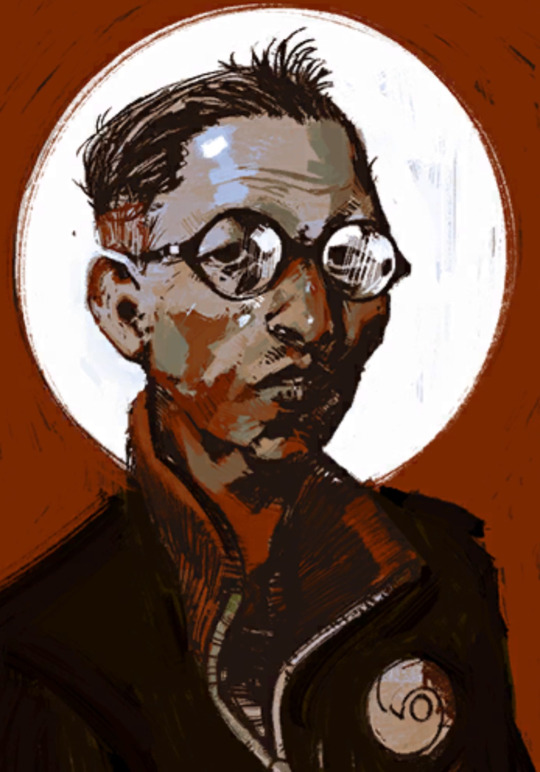sdgfhkjklk - all my shit is in another account. where is it? try and find it
Don't wanna be here? Send us removal request.
Text
I recently moved Wendy from the barn pen to Earl's pen, since I finally sold her last daughter. She got to spend a couple days in the middle pen where Earl and Heather could see her first, and then I moved her through the inter-pen doorway that's just for birds.
Now you must understand. I have Wendy because I got a phone call to come catch a feral/escapee peahen that had invited herself over to someones coop and decided she would take up residence. Just made herself at home. So we caught her, and I put her into the barn pen with the others after quarantine and vet checks....
and shortly after doing that, I started finding the pen door open. It thankfully opens into the barn, not outside, but I thought I was losing my mind. I thought I was forgetting to close the door behind myself. But I wasn't! This little shit found the small string we use to open the door from the inside if we accidentally get locked in the pen, and she was pulling it to open the door. So, we put a carabiner on the latch and as long as we don't forget that, the door stays closed.
Now, pen 3 doesn't have an oh shit string. It doesn't need one, I can reach my hand through the fencing near the door and let myself out. The latch isn't one she could open from the inside.
But you know what door DOES have a latch she can reach?
The fucking bird gate.
The bird door between the pens just has an eye and hook latch.
Earl and Heather have been in that pen since March, largely with Stella and Eris, and shortly with Aurora, and there were never issues with the latch being peafowl accessible because none of them knew what a latch was or cared.
Wendy has been in that pen about a week, and this morning I let them out of the coop into the pen and not even 5 minutes later, she had the door open and was in the middle pen helping herself to the remaining wet feed from the day before.
This bird is a menace
176 notes
·
View notes
Text
Goddamn there's thousands of people on Tumblr with fucking cutesie icons and the obligatory list of "I'm a good person" profile signals saying shit like "oh well it makes sense this journalist is evil, his name is Goldberg" like I truly don't know what to say anymore
#goldberg exposed a glaring example of the administrations idiocy and yall chose to harp on him for not being pUrE eNOuGh for you#most of tumblr has been cooking themselves in jew hate for who knows how long#reminds me of that quote about the speakers bully posting about a mouse in a jacket like its them#antisemitism#us politics
1K notes
·
View notes
Note
The left being more mad at Jeffrey Goldberg for exposing the Signal chat than at what he exposed is the reason why most Americans will never vote for them and why being associsted with them is poison. Pepple may complain about where they live, but at the end of the day, patriotism is a thing that the majority of any country in the world feels, so when someone says they don't give a fuck about their fellow countrymen dying, they're not going to want them in power.
And I think this is something the left either doesn't know or ignores on purpose? Like, they'll hold more water for actual terrorists and slavers than minorities suffering where they live.

48 notes
·
View notes
Text
LGBTQ Disabled Characters Showdown Quarterfinals Poll 1


Vs.

Please be civil in the notes. We will block people if we feel it is necessary. A character being canon LGBTQ+ and disabled was not required to be in this competition. Please check qualifications and propaganda before asking why a character is included. This is not a competition of who is better representation.
Check out the other polls in the quarterfinals here.
Harrier ‘Harry’ du Bois-Disco Elysium
Qualifications:
Bisexual. Struggles with addiction, post-polio syndrome, multiple kinds of mental illness, and whatever else he's accrued by living in a city with no accessible healthcare.
Propaganda:
You know who he is. Vote for him.
Kim Kitsuragi-Disco Elysium
Qualifications:
Visually impaired
Propaganda:
I dunno man. He's Kim Kitsuragi. There's nothing I can say about him that hasn't already been said. He's quiet and reserved and uncomfortable with emotions. He's a self-proclaimed Torque Dork who loves his car like a child. He listens to heavy metal music. He's a centrist. He's a homosexual. He's consistently given shit by everyone around him for his race, his sexuality, and his disability, and he's taught himself to respond to it with cold professionalism. He dresses in historical communist pilot cosplay. I love him with my entire heart.
Yang Xiao Long-RWBY
Qualifications:
She is canonically wlw (has been for years but specifically kissed and got together with her now girlfriend in the latest season) and uses a prosthetic arm and has been shown to struggle with PTSD due to the traumatic nature of losing it during the show.
Canonically had her right arm chopped off, uses a prosthetic. Has PTSD. Is canonically in a WLW relationship.
She has a canon girlfriend and canonically has a prosthetic arm and PTSD
She's canonically sapphic (part of a recently canonised wlw slowburn relationship) and is an amputee (due to events from the 3rd season finale) who wears a robotic prosthetic. She also suffers from PTSD which is explored in the show
Propaganda:
I will keep on submitting Yang to relevant brackets until I die. RWBY has plenty of strengths and weaknesses with writing, especially Yang's recovery arc, but instead of forcing her to push past her trauma and enter the battlefield immediately, we see her struggle with it, take time to process, and not be pushed into repression and when she chooses to wear her prosthetic, chooses to train to ready herself, and chooses to seek out her family and save lives, she isn't perfectly healed, as no one is. The show depicts her having flashbacks due to sudden loud noise, shaking hand the first few times she has to fight for her safety instead of training with her dad, and snapping at friends when they bring up Blake, the person she lost her arm trying to save (who, near immediately after ran away due to feeling she was endangering those she loved, furthering Yang's already present abandonment issues.) It isn't done perfectly but the intentions and general message sent are extremely positive and honest. She struggles less as the show progresses, and there are opportunities to consider herself less for being disabled or "become whole again" but she explicitly refutes these ideas and says that's she's better because of her failures and losses, and isn't any less whole. Her becoming disabled is also extremely tied to her being LGBT, because, as previously mentioned, she lost her arm protecting her then friend and partner, now girlfriend, directly after the villain who cut her arm off told her love interest that he would "destroy everything [she] love[s]. (Camera pans to Yang, he looks at her.) Starting with her." LIKE. He attacked her BECAUSE Blake cared for her so much and Yang ran to her defense blindly BECAUSE she loved Blake so much. When they reunite, they struggle with communication because Yang feels Blake is seeing her as weak, and through several things, mostly a climatic battle against the man who severed Yang's arm, they affirm each other as equals. I can go on but this is already too long. YANG SWEEP!!!!!
Yang lost her arm while protecting her best friend and future girlfriend from said girlfriend's abusive ex. Had a whole arc about learning to live with that loss and dealing with PTSD. Is totally devoted to and in love with Blake Belladonna and is just the sweetest but most badass character in the show.
She's one of the main characters, and just finished a 10 year slow burn romance. Plus, she has both physical and mental disabilities, but is never treated as lesser or incomplete.
Yang Xiao Long was one of the first examples of a sapphic character I ever saw in animated media with her character journey in the show being an iconic part of my teenage years and current young adulthood. The loss of her arm after a traumatic event in the show's 3rd volume was one of the big shockers of the show that nobody saw coming. Since then the show has done an amazing job in exploring both the mental and physical effects of her losing a limb, gaining a prosthetic arm and the recovery journey. Her character also has a major arc regarding handling her PTSD from both this and her past most notably in the 5th and 6th volume. Her character also has a slow-burn romance with her teammate and fellow main character Blake Belladonna which is one of my fave romances ever (it has everything: canon soulmates, friends to lovers, sunshine x grump,battle couple etc..) that has recently became CANON BABIEE!!! There are MULTIPLE characters in RWBY with various disabilities that are handled well in the narrative but i would say Yangs definitely the top FAVE!
590 notes
·
View notes
Text

This website comes up with some of the funniest shit I’ve ever seen. Do you think South Korean immigrants see the USA fighting on the South Korean side as a genocide against their people. Also did you know currently in Vietnam people generally have a positive view of the USA. Obviously there is going to be variation in views and complexity to this but generally thats what you will see. This is not about the ethics of either these wars or whether or not the US should have entered it. This is about this being one of the most out of touch positions I’ve ever seen
#i found the og post#its from a blog that calls herself a maowife#lmao#out of all the rbs i found only 1 (1) acknowledging that vietnamese americans would not necessarily be sympathetic to vietnam#bc most are from south vietnam
60 notes
·
View notes
Text

It’s the blue haired girl
192 notes
·
View notes
Text

2K notes
·
View notes
Text

ruby my bby girl
top: i headcanon some subtle differences btw her and summer. overall ruby has darker hair, lighter skin, and more asian features than summer. both have very rosy cheeks and noses
bottom: my take on an older ruby design. it mostly takes after her mistral and atlas designs, but w/ some unique elements, like the skirt, spiked rings, red gloves, and thorn chains. i wanted a more androgynous blend of traits, w/ a balance of both femme and masc, overall leaning towards a punkish aesthetic. i also wanted some more reds, whites, and grays in her color palette
12 notes
·
View notes
Text

literally how do you even come to that conclusion when he's literally committing his forces to Cinder
the inability to put two and two together is astounding
32 notes
·
View notes
Text
COURT ACKNOWLEDGES 'CERTAIN' JEWS MIGHT TAKE OFFENSE
^ that was the subheading.
“certain Jews might take offense.”
Belgian author Herman Brusselmans, who wrote last August, “I get so furious that I want to ram a sharp knife through the throat of every Jew I meet,” was acquitted Tuesday by the Ghent court in Belgium of charges of Holocaust denial, racism, and incitement to hatred.
Jewish organizations around the world condemned the ruling, which determined that Brusselmans’ column was legitimate free expression. They warned it would set a dangerous precedent that would make it harder to fight antisemitism in Europe.
[…] Of course, you always have to remember: Not every Jew is a murderous bastard,” he added. “I imagine an elderly Jewish man shuffling down my own street, dressed in a washed-out shirt, fake cotton trousers and old sandals, and I feel sorry for him and almost get tears in my eyes, but a moment later I wish him to hell.”
[…] “The court recognizes that certain members of the Jewish community could possibly take offense at some sentences in some columns, but emphasizes that the author’s expressions of opinion are protected by the right to free speech,” the judge wrote.
Following the ruling, European Jewish Association (EJA) president Rabbi Menachem Margolin called the decision “a deeply alarming message about the state of the fight against antisemitism in Belgium and Europe.’’
“Today, the Belgian justice system has established a grave precedent: hate crime laws are flexible – and when it comes to Jews, they suddenly become malleable,’’ he said.
“By issuing such a verdict, the Belgian judiciary sends a dangerous message: incitement to murder and hatred can be reinterpreted, excused, and ultimately legitimized – at least when the targets are Jews,’’ Margolin added. He called on the Belgian government to make urgent legislative reforms to close the legal loopholes that enable such “morally and legally indefensible rulings.’’
Jewish Information and Documentation Center chairman Michel Kotek also spoke out against the decision.
“This is a disgrace to Belgian jurisprudence. For someone who has been making such statements since 1993, we are no longer talking about an incident,” he said. “This is a constant repetition of moves in which anti-Semitic statements predominate.”
“We, too, are for freedom of speech,” Kotek added. “But where it spills over into hatred and the deprivation of safety, that’s where a government must intervene.”
Following the decision, Brusselmans told the Belgian news service VRT that he wasn’t sure if he would make similar statements in the future.
“That is difficult to answer. I do not know what I will write in the future,” he said. “I write a column every week. I may adapt, I may not. But I am careful.”
201 notes
·
View notes
Text
yknow just looking at some of the teams, you can tell which ones were designed first and which ones were much later by how much their body types vary
rwby and jnpr seem to be the earliest teams to be designed, and all the men and women are skinny, very pale, and have similar facial proportions except for eyes (and jawlines in jaune and ren's case) within their genders


meanwhile, cfvy would've been designed around v2, when rt had a bigger budget and could properly render crowds, so while 3 of the cast, including both women, are skinny and have similar facial features, only two are very pale w/ the other 2 being brown and tan, and the 4th member is slightly stockier and much taller, w/ uniquely designed eyes.

then there's the ace ops and the happy huntresses, most likely designed around v7. out of the ace ops, only 1 is pale w/ the others being varying shades of tan and brown, and both men and women have varying body and facial shapes. out of the happy huntresses, again only 1 is pale w/ the other 3 being different shades of tan and brown, and all have different body and facial shapes




also, penny's new design has a bigger nose

its interesting to note. there's probably a bunch of reasons why, primarily implicit biases leading to the designers defaulting to pale and skinny, as well as budget restraints, lack of experience, and the fact that fewer characters means less pressure to differentiate their underlying bodies.
#yang would look so good w/ elms body type#its actually kinda cool looking for subtle variations in their faces#like robin's facial proportions are more masc than the other h huntresses#and may has a wider chin that sticks out a little#rwby#team jnpr#team rwby#team cfvy#ace ops#happy huntresses#rwby penny#penny polendina
11 notes
·
View notes
Note
so if purple/violet are dilutes and um is axanthic, what would jade be? it looks like some sort of dilute, but instead of making the iridescence more violet, it makes it more green
what do jade peafowl look like? I had trouble finding photos
I believe this was the original Jade bird

There just aren't many of them because people don't really care. Most of the ones you see are Spaldings so the color is skewed.

They basically have muted color compared to blues. Browns on the wing and more green on the neck and train, or maybe not as blue of a green.
94 notes
·
View notes
Text
ngl i kinda like how weiss has always been more fiery than icy. it's especially noticeable when you compare her to winter, though winter herself can be hotblooded too
4 notes
·
View notes

